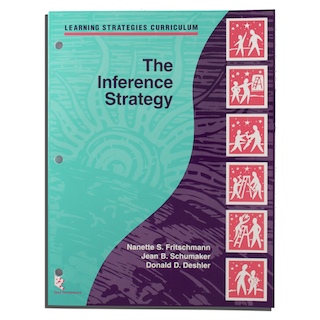Nanette S. Fritschmann, Ph.D.
Affliations
- Assistant Professor
- Lehigh University
- Certified SIM Professional Development Specialist
- University of Kansas Center for Research on Learning
My Background and Interests
First and foremost, like many of my fellow educators, I feel a deep desire to use my gifts and talents to serve those who are in need. I believe this desire grows out of many of my personal life experiences. For example, as a young person, I was drawn to volunteer at a therapeutic equine program that served people of various cognitive and physical disabilities. From a young age, I got a sense of the tremendous determination of people with disabilities, and I learned that, with the right support, all things are possible. I became a teacher of students with disabilities in various settings and realized that although many positive things were happening in our classrooms, there were other things that could be better. My work focused on students with learning disabilities and those who were at risk for academic failure which often included students representing minority populations and/or students who were English language learners. I began to develop a desire to address instructional issues within our secondary schools that were becoming more apparent as our educational environments have continued to shift. After becoming a mother, my desire to impact the academic experience of youths in a positive way has become the focus of my life’s work. I am committed to helping those who need it the most.
The Story Behind the Inference Strategy
As a classroom teacher, I had become increasingly concerned that the many students with mild/moderate learning disabilities whom I had the pleasure of knowing were not learning at the rate and pace that would allow them to feel successful academically. In this role, I began to observe how many teachers often felt that they didn’t have the skills or tools to address the needs of such students. I longed to find better, more effective teaching techniques to allow all students to learn. I began to use the Learning Strategies Curriculum to meet the specific needs of my students. Various students not only began to be successful with academic tests in school (i.e. vocabulary tests, reading quizzes, etc.), but they actually began to generalize complex thinking skills outside of the academic environment. I became inspired to address issues that were becoming increasingly important in our current educational environment. This experience as a teacher started me on the path that would lead me to develop the Inference Strategy.
With the expansion of standards-based reform and assessment-based accountability commonplace in our nation’s schools, I began an attempt to understand what types of skills our students were being asked to demonstrate. Through my research and the work of colleagues, a pattern began to appear. I learned that all students are being held accountable for using specific reading comprehension skills. Two main categories of comprehension processes are required: those at the literal level and those at the inferential level. I also began to observe the various ways that teachers addressed these types of skills in both elementary and secondary classrooms. As expected, elementary teachers addressed many of the requisite skills using a variety of techniques and practices. In contrast, given the focus of presenting content in secondary learning environments, reading instruction was not a focus of instructional time in secondary classes. Based on these understandings, I began to develop a method for teachers to use to provide explicit, systematic instruction in literal and inferential comprehension processing to give all students the skills they need to be successful. My goal was to develop an instructional program that could be used within typical English language arts classes that was aligned with current educational practices and content standards.
My Thoughts about Inference Strategy Instruction
I have been fortunate enough to observe teachers with various levels of experience in different regions of the country teach the Inference Strategy to their students with and without disabilities in both middle- and high-school settings. Each time, I have seen students engaged and interested in applying a strategic method to reading materials that they may have considered unapproachable in the past. I have seen students with disabilities and underperforming students celebrate their improvements in reading and “show off” their improved performance or scores. I believe that today’s educators are facing tough challenges each and every day and that we must find a way to address these challenges in the most efficient manner possible. I believe that the Inference Strategy program is a program that does just that.
Teacher and Student Feedback on the Inference Strategy Instruction
By and large, the feedback from teachers who have implemented instruction in this strategy has been extraordinarily positive! Also, teachers have commented on how this program is really a combination of skills that many other programs address. The difference between this program and others is that this program is a way to address the various levels and combinations of skills that our diverse learners bring to our classrooms. Also, teachers have commented on how the program helps them to structure their discussion around reading materials in order to maximize instructional time. Teachers have reported a deeper understanding of higher level reading comprehension processes, which in turn has helped them teach more effectively. Further, students have made statements like, “Finally, here is something that will help me get through this stuff!”
My Contact Information
- Nanette S. Fritschmann, Ph.D.
- The College of William and Mary
- 301 Monticello Ave.
- Williamsburg, VA 23187
- 757 221-6201
- nfritschmann@wm.edu


